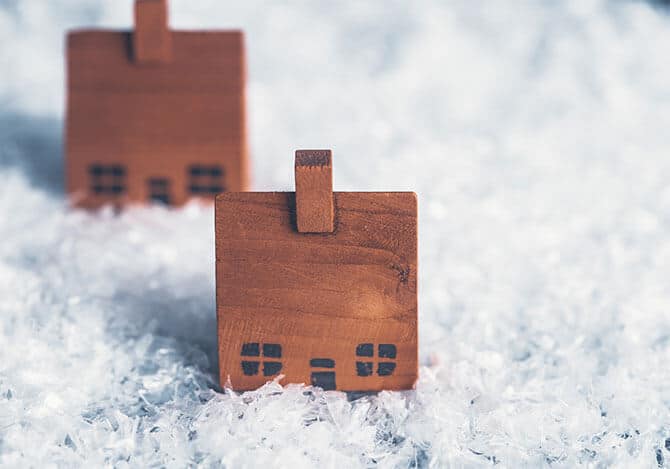
4 Common Questions About Mold In Cold Temperature
Many people regard mold as a seasonal concern. Most homeowners believe that mold problems disappear during winter. However, even if it’s true that temperature doesn’t affect how mold grows, it is still a year-round problem.
Mold that grows indoors can damage your home and adversely affect your health. It’s crucial that you learn how and where mold can grow even during the colder months.
To help you out, Master Restoration Idaho, a trusted mold removal expert, answers some of the most common questions about mold:
Can Mold Still Grow During Winter?
Yes, mold can still grow during winter. You might have even more problems with indoor mold during these months because of the humidity in your home.
Mold is a living organism that feeds on moisture and grows on damp surfaces. When it gets cold, the air inside your home becomes more humid, making it difficult for you to control mold growth.
Wet surfaces in your home are also breeding grounds for mold. When it’s cold, water can freeze and expand, which can cause your pipes to crack. This is even more likely if you’re not regularly checking your water lines.
Ice dams can also force water to seep under your roof and remain there until it melts. After several days of snowfall, this water will freeze and cause the surface of your home to be damaged.
How Come Mold Grows on Windows During Winter?
As the temperature drops, the amount of moisture inside your home increases. This makes your windows especially prone to mold because they are usually placed in areas without enough ventilation.
Mold can grow on the windows because of condensation. This happens when cold air comes in contact with warm glass. When this happens, it changes the temperature of the glass and creates moisture.
Even if there is no sign of condensation, the windows can still be a carrier of mold. When the warm air inside your home comes in contact with the cold window, it can create enough moisture to cause mold to grow.
To prevent this from happening, remember to ventilate your home whenever the temperature is too hot or too cold. This will help prevent your windows from being covered with condensation.
Should I Worry About Mold Allergies in the Colder Months?
No, you should not. The common misconception is that mold allergies or asthma are triggered by mold growth. In reality, mold spores are present in the air, regardless of the season.
Although you can find more mold spores in the air during the spring and summer, the cold weather won’t make your allergies or asthma trigger any faster.
That being said, mold can still cause serious respiratory problems. It can generate allergens called penicillium, often found in the indoor air during the fall. These allergens can cause runny nose and asthma attacks.
How Can I Prevent Mold Growth in My Home During Winter?
To prevent mold growth in your home, you may want to add an indoor air purifier to your winter regimen. These purifiers are specifically designed to remove mold spores from your indoor air, making it safer for you and your family.
Another way to prevent mold growth is by keeping the temperature in your home comfortable. Turn on the heat or air conditioning depending on whether your home is hot or cold. This will help regulate the temperature inside your home, which will make it less humid.
You should also keep the humidity level inside your home at around 40 percent. This will help prevent mold from growing on your windows and other surfaces.
Conclusion
As you can see from this article, mold can grow both indoors and outdoors. It is still a year-round problem that needs to be addressed immediately.
If you spot signs of mold, call a mold removal expert as soon as possible. It’s essential to remove mold as soon as you see it because otherwise, it can grow and spread, causing more damage to your home. Preventing mold growth in your home during winter is one way to ensure that you can have a healthy and mold-free home all year round.
If you need help in getting rid of mold or other types of indoor air pollutants, Master Restoration Idaho, a trusted mold removal expert is here for you. Our team in Boise, ID, specializes not only in mold removal but also in handling fire and water damage. Contact us today to know about our services!
